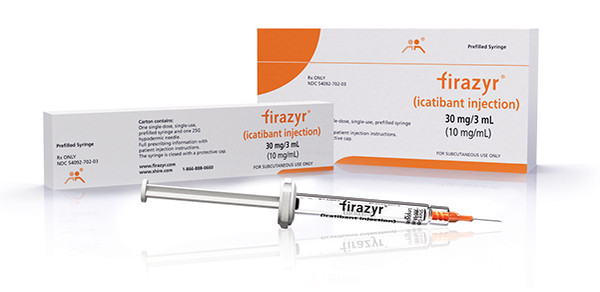Takeda Pharmaceutical Korea said that the Ministry of Health and Welfare would grant expanded reimbursement for its acute hereditary angioedema seizure treatment, Firazyr, from next month.

The ministry will expand the insurance benefits for Firazyr to two doses per patient from the existing one-dose regimen. The expanded insurance benefit will allow patients with confirmed hereditary angioedema due to a deficiency of a C1-esterase inhibitor to receive reimbursement for up to two doses.
Hereditary angioedema is a rare hereditary disease in which the tissues of the hands, feet, abdomen, or occipital region swell up due to a deficiency or malfunction of a C1-esterase inhibitor in the body. The disease causes random acute seizures in the occipital region, leading to death due to airway obstruction, while swelling in the intestine may cause intestinal obstruction and lead to intestinal necrosis. Such acute seizures can last from 24 to 72 hours with unpredictable intensity.
Patients with hereditary angioedema always live with the fear of additional seizures that may occur after the first acute attack. As the single-dose regimen was difficult to prepare for additional episodes in emergencies, there was still an unmet need for patients, the company said.
“As the only treatment for hereditary angioedema acute seizures in Korea, we are very pleased that the reimbursement has improved the treatment environment for patients with hereditary angioedema,” said Ji Chang-duk, head of Takeda Korea’s genetic disease business unit. “Patients with hereditary angioedema, who have a hard time carrying out their daily lives due to unexpected seizures, will now have an opportunity to respond effectively to emergencies.”
Firazyr is an emergency treatment used for the acute attack of hereditary angioedema over two years of age due to a deficiency of a C1-esterase inhibitor by blocking the vasodilating action of Bradykinin to relieve acute seizures within two hours.
As the company provides the treatment in the form of a pre-filled syringe, patients can self-inject the drug in emergencies, Takeda Korea said.

